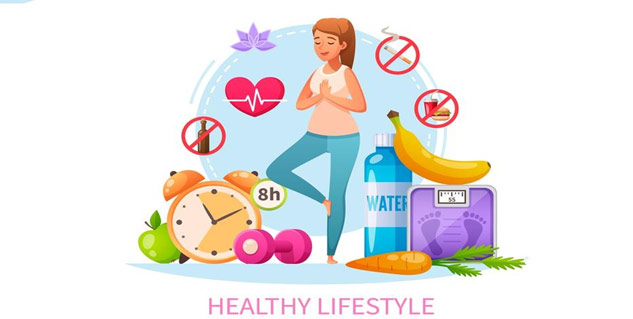
Your 30s are a busy time! Career, family, and social life often take center stage. But it's also a fantastic time to think about your long-term health, including your ability to have children down the road. The good news? Making small, healthy habits now can make a big difference for your reproductive health in the years to come. You don't need to make huge, overwhelming changes. Here are some simple things you can start doing today!
Table of Content:-
1. Eat Well, Feel Well
Think of your body as a garden. To grow healthy plants (aka healthy reproductive cells!), you need good soil and nutrients. Focus on eating a balanced diet with plenty of:
- Fruits and vegetables: These are packed with vitamins and antioxidants that protect your cells. Aim for a rainbow of colors on your plate!
- Whole grains: Choose brown rice, whole-wheat bread, and oats for sustained energy and fiber.
- Lean protein: Chicken, fish, beans, and lentils are important for hormone production and overall health.
- Healthy fats: Avocado, nuts, seeds, and olive oil are good for hormone balance.
Try this: Add one extra serving of vegetables to your dinner each night. Swap white bread for whole-wheat.
Also Read: Why Do UTIs Keep Coming Back? Exploring The Underlying Reasons

2. Move Your Body
Regular exercise isn't just good for your waistline; it's also great for your reproductive system. It helps:
- Maintain a healthy weight: Being overweight or underweight can affect hormone levels and ovulation in women and sperm production in men.
- Reduce stress: Stress can throw your hormones out of whack. Exercise is a fantastic stress reliever.
- Improve blood flow: Good circulation is important for the health of your reproductive organs.
Try this: Aim for at least 30 minutes of moderate-intensity exercise most days of the week. This could be a brisk walk, a bike ride,or dancing to your favorite music.
3. Get Enough Sleep
Sleep is when your body repairs and recharges. Not getting enough sleep can disrupt your hormones, which can impact ovulation and sperm production.
Try this: Aim for 7-9 hours of quality sleep each night. Create a relaxing bedtime routine to wind down before sleep.
4. Manage Stress
Life in your 30s can be stressful! Finding healthy ways to cope with stress is crucial for your overall well-being, including your reproductive health.
Try this: Explore stress-reducing activities like yoga, meditation, deep breathing exercises, spending time in nature, or pursuing hobbies you enjoy.
Also Read: Turmeric And Magnesium: Here’s What Happens When You Combine Them Together

5. Be Mindful of What You Put in Your Body
Certain substances can negatively affect your reproductive health:
- Smoking: Damages eggs and sperm, reduces fertility, and increases the risk of miscarriage. Quitting is one of the best things you can do for your overall and reproductive health.
- Excessive alcohol: Can affect hormone levels and sperm quality. Moderation is key.
- Too much caffeine: While a cup or two is usually fine, excessive caffeine intake might impact fertility for some individuals.
- Environmental toxins: Try to limit your exposure to things like pesticides and certain chemicals found in plastics.
Try this: If you smoke, talk to your doctor about resources to help you quit. Be mindful of your alcohol and caffeine intake.
6. Know Your Body
Pay attention to your menstrual cycle (if you have one). Irregular periods can sometimes be a sign of underlying issues that could affect fertility. For men, be aware of any changes in testicular health.
Try this: Track your menstrual cycle. If you notice significant changes or have concerns, talk to your doctor. Men should perform regular self-exams of their testicles.
7. Talk to Your Doctor
Regular check-ups with your doctor are essential for overall health. Don't hesitate to discuss any concerns you have about your reproductive health. They can provide personalized advice and guidance.
Try this: Schedule your annual check-up and be open and honest with your doctor about your health and any questions you have.
Bottomline
You don't have to overhaul your entire life overnight. By incorporating these simple, healthy habits into your routine, you can significantly boost your reproductive health and set yourself up for a healthier future. Remember, consistency is key, and every positive change you make counts!
Also watch this video
How we keep this article up to date:
We work with experts and keep a close eye on the latest in health and wellness. Whenever there is a new research or helpful information, we update our articles with accurate and useful advice.
Current Version